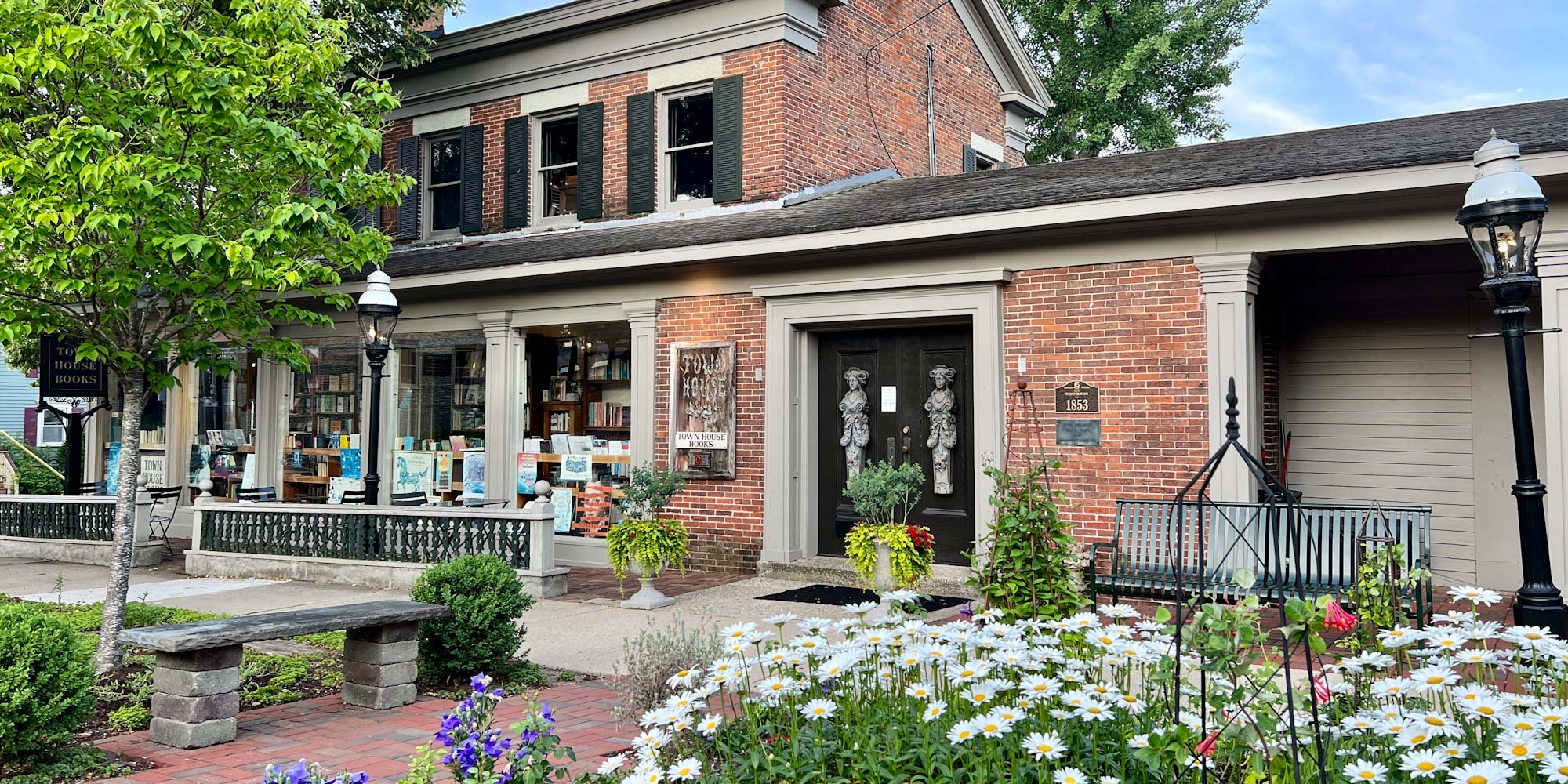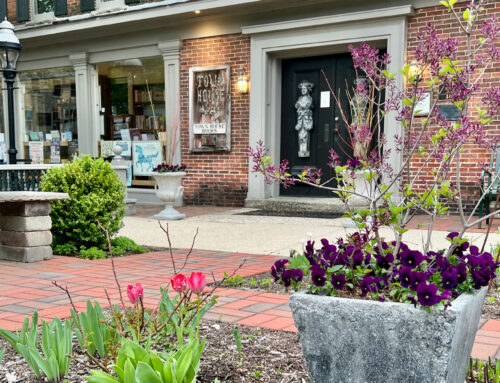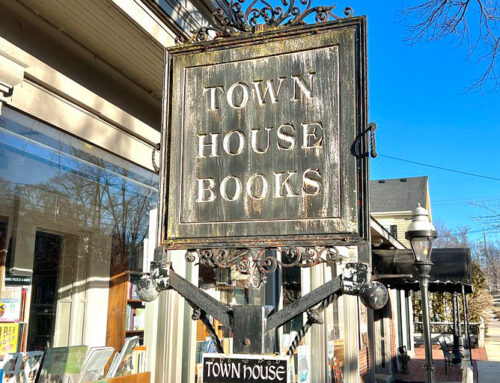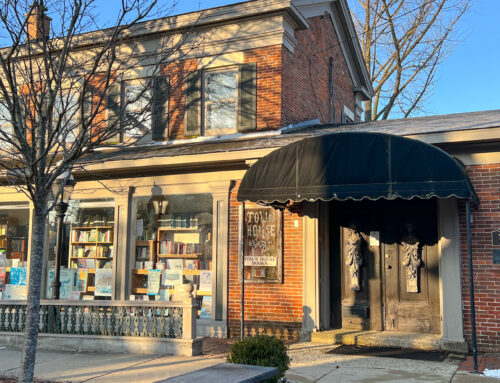Not Quite Heaven: The Neglected Utopia
For things will never be perfect, until human beings are perfect—which I don’t expect them to be for quite a number of years!
-Thomas More, Utopia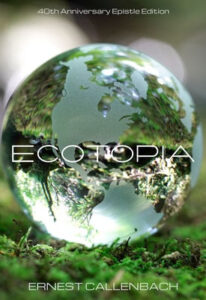
With the proliferation of dystopian themes in adult and young adult literature, movies, and gaming, there seems to be a trend towards stories that play out the overwhelmingly negative and horrifying aspects of our worst headlines.
But through the ages, imagination has also served to create possibilities of a more appealing future. Utopian literature has played a part in helping us conjure different ways of governing, educating, and working. We rely on our dreamers to envision new worlds, new inventions, new ways to heal the environment.
“It is so hard to imagine anything fundamentally different from what we have now. But without these alternate visions, we get stuck on dead center. And we’d better get ready. We need to know where we’d like to go.”
-Ernest Callenbach, Ecotopia
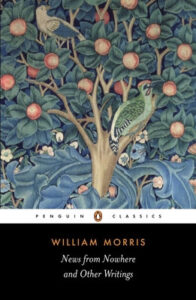 The term “utopia” was coined by the English philosopher Sir Thomas More, from the ancient Greek words meaning “good place” and “no place.” His book Utopia, published in 1516, describes a perfect imaginary world.
The term “utopia” was coined by the English philosopher Sir Thomas More, from the ancient Greek words meaning “good place” and “no place.” His book Utopia, published in 1516, describes a perfect imaginary world.
William Morris picked up the theme in 1890 with his novel News From Nowhere which drew my attention as a graduate student years ago. Morris’s utopia was based upon his political ideals of equality and his fervor for beauty, which he felt should be incorporated into the everyday lives of all people, regardless of station or economic status.
“Have nothing in your houses that you do not know to be useful or believe to be beautiful.”
-William Morris
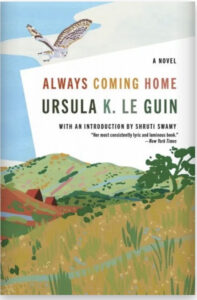 More contemporary utopian novels like Ursula Le Guin’s Always Coming Home and Marge Piercy’s Woman on the Edge of Time also imagine futures in which radical changes occur to create societies that further elevate egalitarianism and environmental stewardship. In the introduction to the new edition of her utopian novel, Marge Piercy talks about the dystopian literature she grew up with and her desire to create the kind of world she herself wants to live in:
More contemporary utopian novels like Ursula Le Guin’s Always Coming Home and Marge Piercy’s Woman on the Edge of Time also imagine futures in which radical changes occur to create societies that further elevate egalitarianism and environmental stewardship. In the introduction to the new edition of her utopian novel, Marge Piercy talks about the dystopian literature she grew up with and her desire to create the kind of world she herself wants to live in:
“Science fiction in the 1950s was flooded with miserable post-nuclear-holocaust worlds, and I spent my adolescence reading a fair amount of those.
…Utopia is born of the hunger for something better, but it relies on hope as the engine for imagining such a future.”
-Marge Piercy
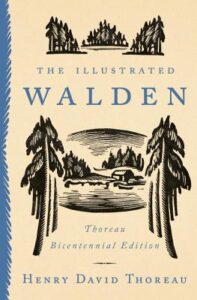 A friend has recently been sharing passages from Walden with me, and while Thoreau decries many aspects of his 19th century culture, he also offers a vision for an alternative way of life. In the face of growing industrialism, Thoreau’s ideal was self-reliance and simplicity. So we, in our digital age, must continue pondering what kind of society we want to support; as will future generations with whatever their new challenges may be.
A friend has recently been sharing passages from Walden with me, and while Thoreau decries many aspects of his 19th century culture, he also offers a vision for an alternative way of life. In the face of growing industrialism, Thoreau’s ideal was self-reliance and simplicity. So we, in our digital age, must continue pondering what kind of society we want to support; as will future generations with whatever their new challenges may be.
“I know of no more encouraging fact than the unquestionable ability of man to elevate his life by conscious endeavor… To affect the quality of the day, that is the highest of arts.”
-Henry David Thoreau
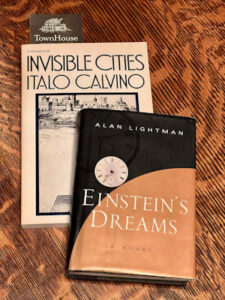 Some of my favorite writing contains utopian elements, although the nature of great literature is to reflect all aspects of our lives: both the dystopian and utopian. As with Italo Calvino’s Invisible Cities, in the brilliant little novel Einstein’s Dreams, author and physicist Alan Lightman devotes each chapter to an imaginary world, in his case, based upon Einstein’s theories of time. Some are worlds of wonder and spaciousness, others feel dark and ensnared, but each one requires a ‘reconception of time’ and how that affects our lives and our relationships to others.
Some of my favorite writing contains utopian elements, although the nature of great literature is to reflect all aspects of our lives: both the dystopian and utopian. As with Italo Calvino’s Invisible Cities, in the brilliant little novel Einstein’s Dreams, author and physicist Alan Lightman devotes each chapter to an imaginary world, in his case, based upon Einstein’s theories of time. Some are worlds of wonder and spaciousness, others feel dark and ensnared, but each one requires a ‘reconception of time’ and how that affects our lives and our relationships to others.
Maybe dystopias are similar to our nightmares in that we need them in order to work out our deepest fears of the future. But mustn’t we also awaken to embrace the present and envision new possibilities? From Thomas More to Ursula Le Guin, who better than our writers, artists and poets to nourish the imagination that creates new possibilities.
Please take a look at our wide variety of selected reading lists to find more recommendations.
Happy Reading!

